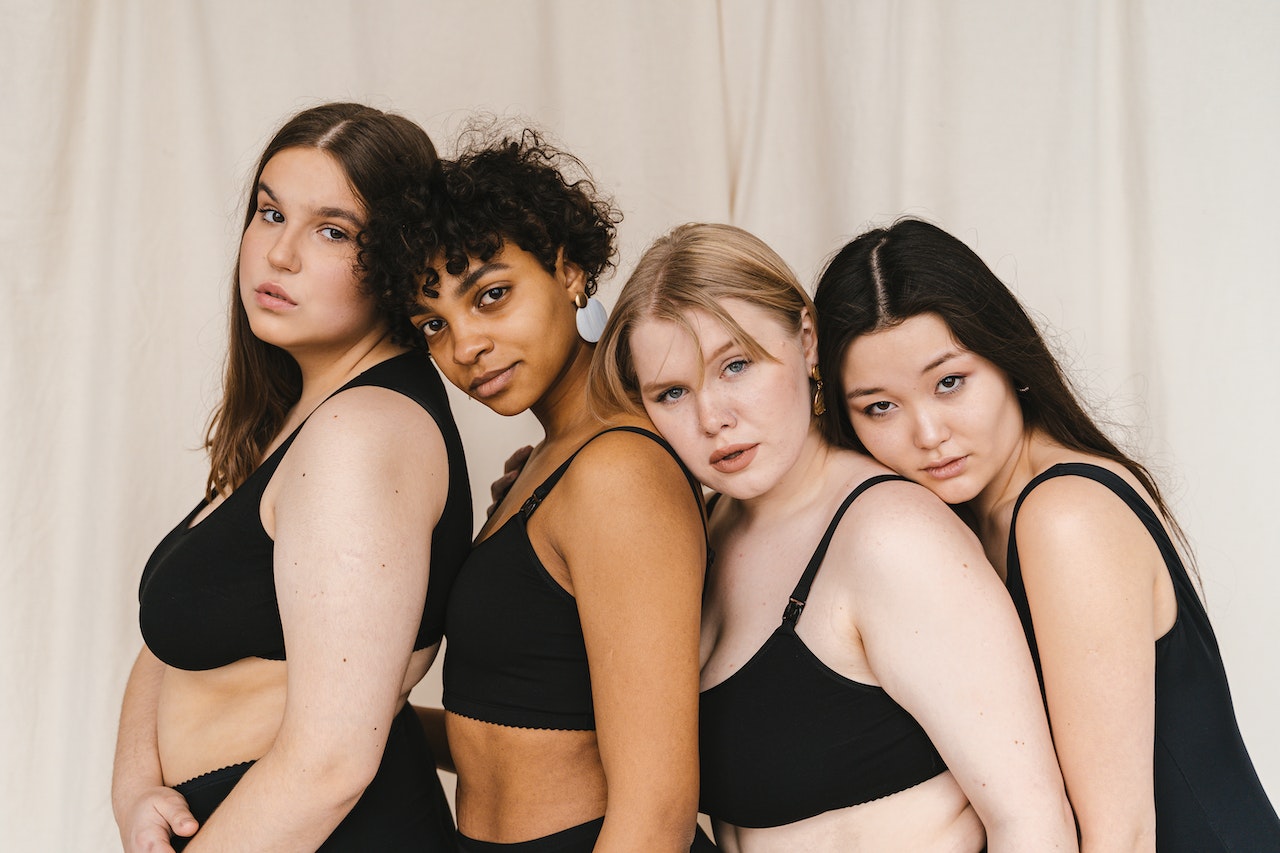How is the popularization of shapewear impacting the UK’s body image?

Insight agency Opinium polled 2,000 UK adults to understand the impact that shapewear is having on the UK’s body image. Here, Opinium’s Zoe Rivlin explores the public’s concerns.

With Kim Kardashian’s shapewear brand Skims launching its first European pop-up on June 12th, the debate around the popularization of shapewear – and whether it can exist alongside the body positivity movement – shows no sign of going away any time soon.
Nearly half of UK women are dissatisfied with the way their body looks
In the Kardashian era of social media, the pressure on women to look a certain way is unrelenting. In fact, Opinium’s nationally representative survey of 2,000 UK adults found that 44% of women are dissatisfied with the way their body looks (compared to 26% of men).
Rather than a solution, the popularization of shapewear appears to be making the problem worse. While it might provide a temporary confidence boost, 45% of women who wear shapewear say that it actually has a negative impact on their body image and that they feel less confident in the long term.
Skims shapewear is no exception. In fact, 85% of women who have bought from the brand say that wearing shapewear made them feel less confident in the way their body looks without it.
The majority think shapewear comes with too much pressure to look perfect
Perhaps as an attempt to combat negative commentary, Skims promotes itself as an inclusive shapewear brand, with its ‘Made For Every Body’ strapline encapsulating the body positive image they want to portray. This message of body inclusivity, however, does not appear to do enough to assuage worries about the impact of shapewear on women and girls.
In fact, the promotion of shapewear by high-profile celebrities like Kim Kardashian is a cause for concern among the UK public. Two-thirds of women (and half of men) think it puts too much pressure on women to look a certain way, and the same proportion are concerned that it is damaging to the body confidence of young girls and women.
As well as having broader societal concerns, a third of UK women say that the promotion of shapewear by celebrities like Kim Kardashian has damaged their body confidence, rising significantly to 72% of women who have bought Skims.
Perhaps what is even more impactful is that one in five women who have seen/heard about Skims say that it made them feel inadequate (10%) or insecure (9%).
Brands, do better
While the popularity of the Kardashians and the Skims brand is undeniable, the research shows that public concern about the impact of this popularization of shapewear is deep-rooted and unwavering. If brands like Skims want to assuage these concerns, they need to do more than an inclusive strapline and a roster of plus-size models.
Instead, public opinion suggests that many believe celebrities (especially those with large followings of young women and girls) have a responsibility to promote body confidence and positivity. But can a shapewear brand like Skims and the body positivity movement co-exist? The answer is unclear.
What is clear, is that this debate around the popularization of shapewear is longstanding, hugely important, and unlikely to diminish – especially with such high-profile protagonists.
To read, or listen to, the full article on The Drum click here.




